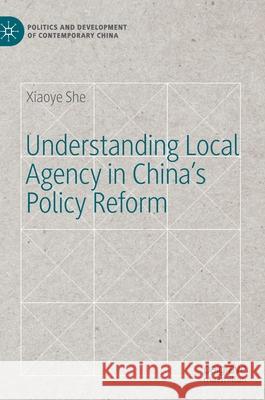Understanding Local Agency in China's Policy Reform » książka
topmenu
Understanding Local Agency in China's Policy Reform
ISBN-13: 9783030762117 / Angielski / Twarda / 2021 / 267 str.
Kategorie BISAC:
Wydawca:
Palgrave MacMillan
Seria wydawnicza:
Język:
Angielski
ISBN-13:
9783030762117
Rok wydania:
2021
Wydanie:
2021
Numer serii:
000569238
Ilość stron:
267
Waga:
0.49 kg
Wymiary:
21.01 x 14.81 x 1.75
Oprawa:
Twarda
Wolumenów:
01
Dodatkowe informacje:
Wydanie ilustrowane











